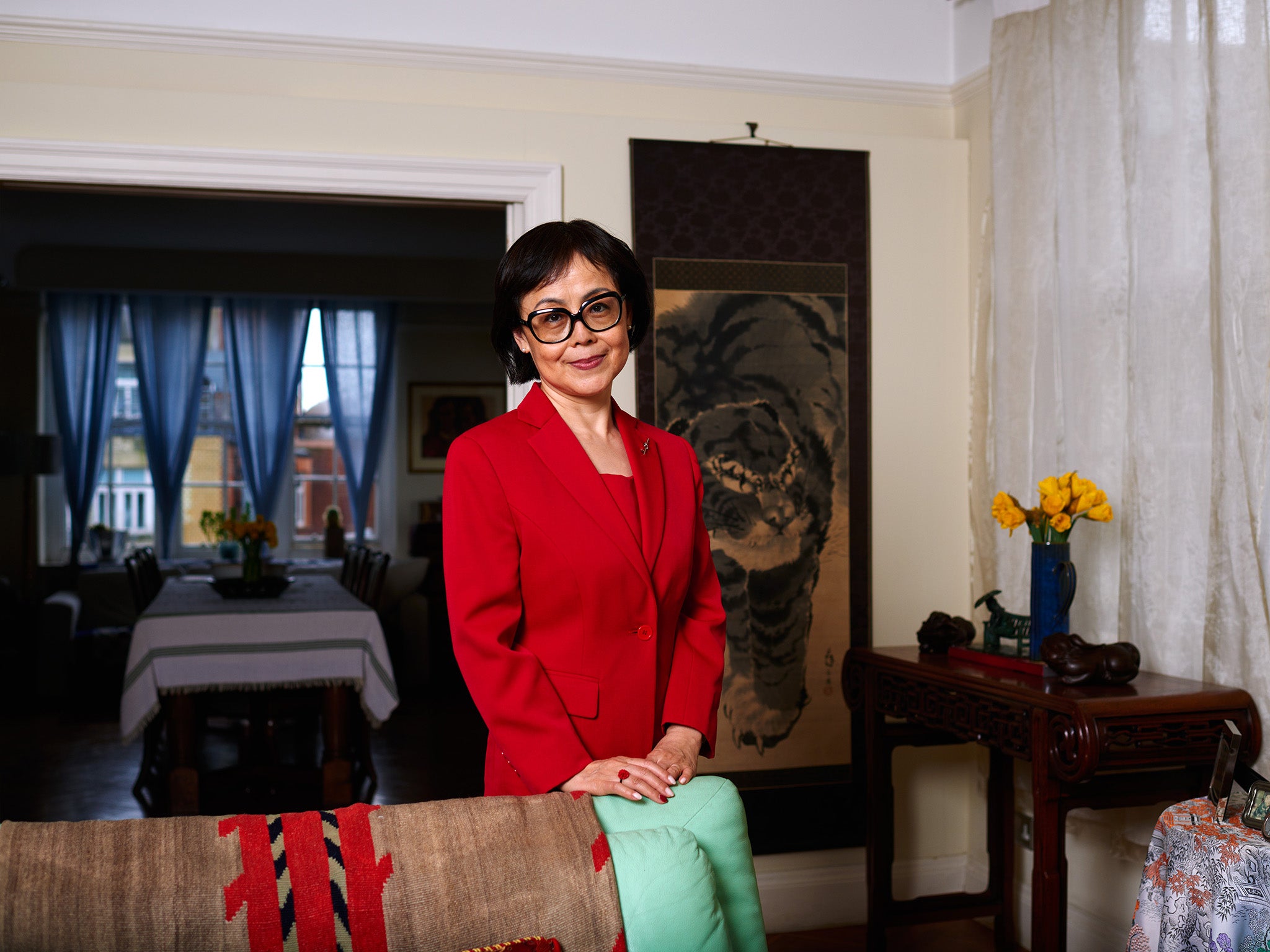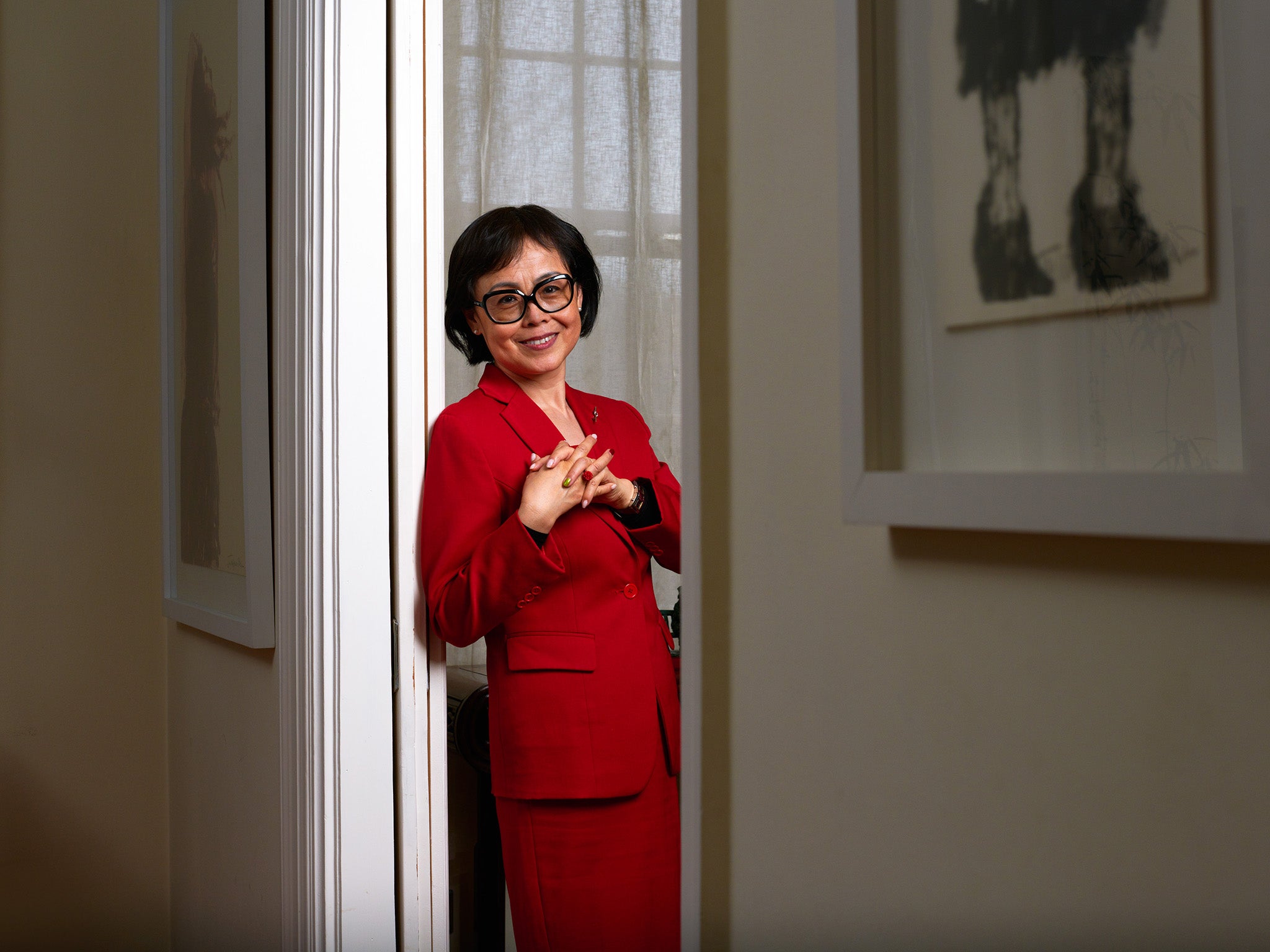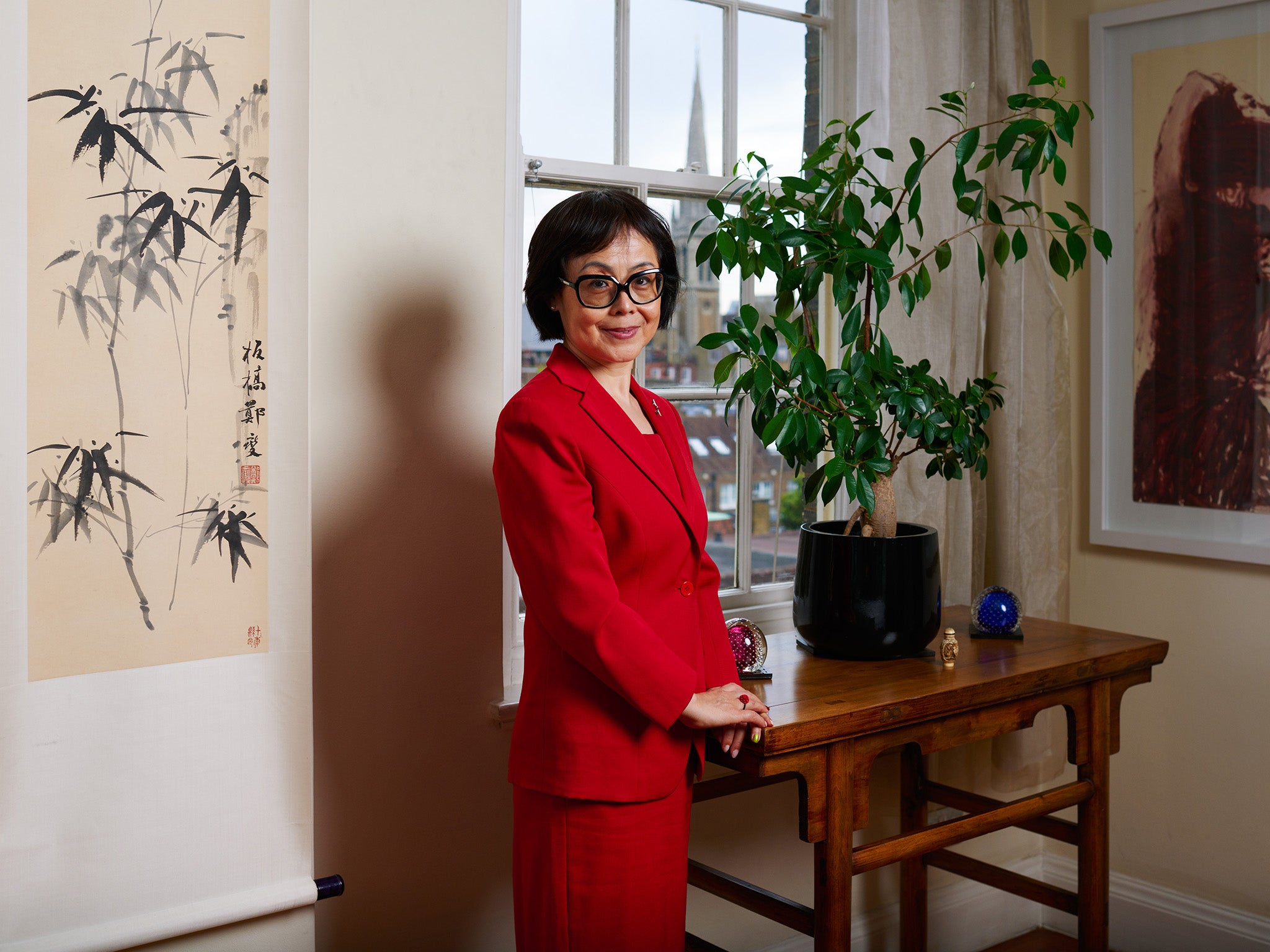Xinran interview: Buy Me the Sky author on why her book is inspired by China's one-child policy
She is sought out as an expert on everything Chinese, yet on her visits home she feels alienated by the pace of change in China’s cities

Your support helps us to tell the story
From reproductive rights to climate change to Big Tech, The Independent is on the ground when the story is developing. Whether it's investigating the financials of Elon Musk's pro-Trump PAC or producing our latest documentary, 'The A Word', which shines a light on the American women fighting for reproductive rights, we know how important it is to parse out the facts from the messaging.
At such a critical moment in US history, we need reporters on the ground. Your donation allows us to keep sending journalists to speak to both sides of the story.
The Independent is trusted by Americans across the entire political spectrum. And unlike many other quality news outlets, we choose not to lock Americans out of our reporting and analysis with paywalls. We believe quality journalism should be available to everyone, paid for by those who can afford it.
Your support makes all the difference.On my way to Xinran’s flat, I walk across Hyde Park on a spring day. Tourists from all over the world are pootling about, walking and cycling in the sun. If Xinran were here, I think, she’d somehow end up learning all their life stories between one side of the park and the other.
Xinran became famous in this country with The Good Women of China (2003), and other non-fiction telling the extraordinary stories of Chinese women. She was herself a child during the Cultural Revolution, and was separated from her parents when she was seven. Her latest book, Buy Me the Sky, is about a very different generation, the children of China’s one-child policy – young adults who have been so sheltered by their doting parents that some of them can barely look after themselves.
As you would expect, Xinran is a serious woman. Her charity, The Mothers’ Bridge of Love, operates in 27 countries; she has dashed back to our meeting from addressing the London Book Fair. But what gets lost is how funny she is. One of the first things I ask is, after all the heart-breaking stories she has heard, is she still shockable? “Yesterday!” she replies, bursting into laughter. A young woman is visiting her for a couple of days – an only child, whose mother has packed her enormous suitcase for her. And what is in it? “Bath towels! Face towels! All these towels!” The mother must have thought that Xinran’s facilities weren’t swish enough for her precious “lone shoot”.
The next story she tells is also about only children. Recently, the rules in China were partially relaxed, meaning that some couples who are both only children are allowed to have a second child. But the first children of these unions don’t want to share their parents, and there have been threats, abortions and even suicides. Buy Me the Sky explains that some only children are refusing to have any children themselves. They’re too used to enjoying the family’s undivided attention.

“I am worried about this policy,” she says, frankly. “This is like a coin with two sides. One side is very good: 400 million less population; China has a chance to build up a better life, a more educated population. But on the other hand, [in China] everything is based on family.” She explains how family values and respect for elders have been so central to Chinese life that they are even encoded in language. A valued boss is spoken of as a parent. “When you swear [in English], you say ‘You …’ We don’t. We say ‘Your mother, your grandmother …’ You say, ‘My God’. We say, ‘My mum’.” Now, however, family life has changed for good.
Xinran is determined that to understand China, one must understand the language. On her first meeting with her husband, a celebrated literary agent, she stormed out of his office after three minutes when he claimed that he knew China quite well, though he didn’t speak a word of the language. After 13 years of marriage, I ask cautiously, how many words of Chinese does he speak now? “Five,” she says, laughing loudly, “including a dirty one!”
The last time I visited Xinran, to talk about her 2008 book Miss Chopsticks, I admired a standard lamp she has – with a thin pole on to which are threaded about 20 of her books in various translations. This time, she tells me shyly that she made it herself – using a big drill, in a shower cubicle. It sums up to me how she is literary, curious, hands-on, and not to be messed with. I’m shocked when she tells me that sometimes she is ignored or shouted down by self-appointed China “experts”. “It’s because of cultural arrogance,” she says, not unkindly. “China has this problem now, too.”
Xinran is now sought out as an expert on everything Chinese. She readily admits, however, that many Chinese people haven’t the slightest idea about what’s happening in other parts of China. Between city and countryside, she says, one can travel 500 years back in time. But far from flaunting her authority, she seems to have made a career out of being a patient and active listener, from the time when she presented a radio chat show in China to now, when she walks down her busy local high street, stopping in restaurants from 27 different countries and sympathising with the owners about their wayward children.

She tries to visit China twice a year, but increasingly she feels like an outsider: “The more I go back, the more I feel like a rescued wild animal [to whom] the humans one day say, ‘Oh you go back to your forest’. I think I’m going back to my home, but everybody smells you and says, ‘No, you are not a real wild animal. You are brought up by the human zoo!’.” She has picked up the curious British habit of saying “thank you” all the time, she says, and the language of advertising and celebrity in big Chinese cities is so new that she can barely understand a menu any more.
At least, recently, she is hardly ever followed, or detained at customs, as she used to be. But still only one of her books has ever been published in China. Buy Me the Sky was immediately requested, but the cuts they wanted to make were too extreme. “One girl suffers because her father is in jail. But people will ask, ‘Why is he in jail?’ … for me, [the political] background is the roots. Without earth you can just put the trees in the sky, but it doesn’t make sense.”
The one book that Xinran won’t write is her own memoir. “It’s very painful,” she says, with tears in her eyes. “I’m scared to write my own story, because my own story keeps me alive.” So, I ask, if she were to write a book about Britain for a Chinese audience, what theme would surprise and intrigue them. I’d never have guessed her answer: “The National Trust”. When you visit a big old house and garden, she explains, you can learn so much about British culture and history: family structures, how people lived, where they travelled and how they saw their place in the world, “customs, respect, colours, art, everything ….” By contrast, in China, she says: “Modernisation has destroyed too much.”
Thanks to Xinran, at least some stories will live on.
Extract: Buy Me The Sky, by Xinran
Rider, £20
‘I went to a place I had not seen in 20 years – Harbin, the capital of China’s northernmost province, Heilongjiang … [I saw] six people, spanning three generations, all standing around one precious child, watching intently. Passers-by craned their necks to see and hear the piping tones of a toddler just learning to speak. “Mummy, buy me the river!” the three-year-old girl said in a lisping voice to her mother.’
Join our commenting forum
Join thought-provoking conversations, follow other Independent readers and see their replies
Comments